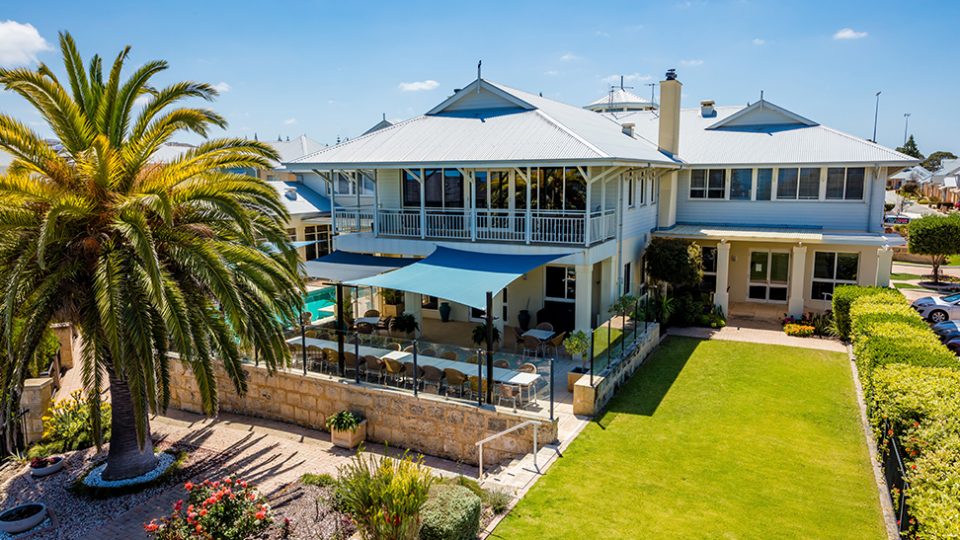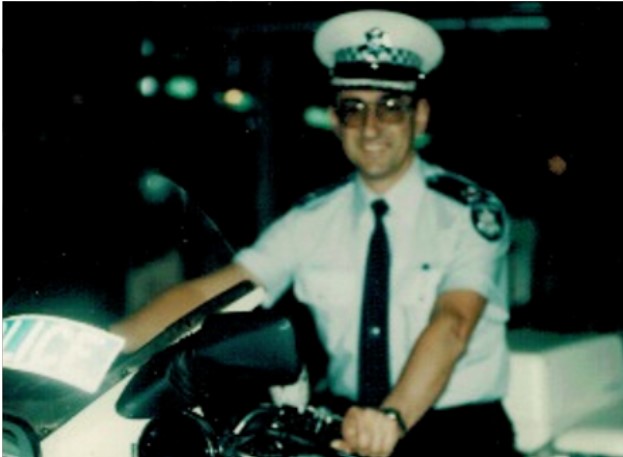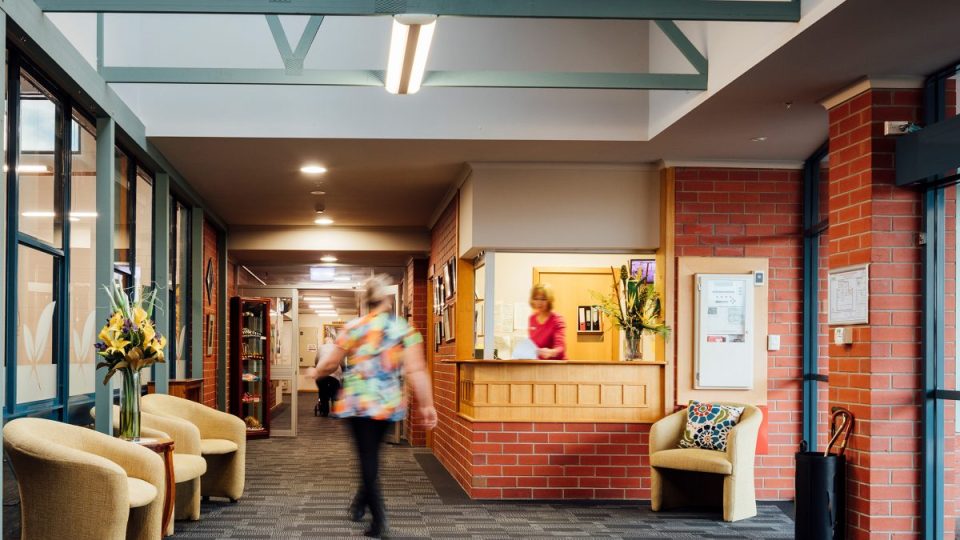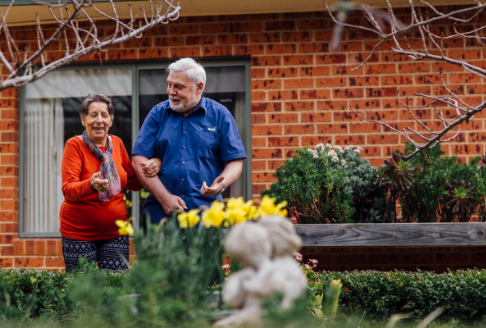When Margaret Grey’s family felt she wasn’t coping at home, they started looking for a residential aged care community that could provide the extra support she needed. “We chose Peninsula View because it had a great atmosphere and lovely staff,” says Margaret.
After experiencing the care at Peninsula View, Margaret says she now can’t imagine life without it. “I don’t need to shop for food, do housework or washing or pay any bills – they take care of everything. We even have a hairdresser who visits twice a week and a chaplain. And if there’s anything wrong medically, you’ve got somebody knowledgeable to talk to. You can always have a word with a nurse if you have a concern.” Having support on-hand is also the reason Doug Faulkner and his wife moved into one of the four double rooms at Peninsula View 18 months ago. “My wife suffers from dementia and I have type 1 diabetes and we needed some extra help,” says Doug.
“The staff are wonderful. Particularly at 2 o’clock in the morning when you have a problem – that’s when you really appreciate how much they do.”
Doug, a resident at the aged care
Another resident, Joan Batten, says there’s always something to do as part of Peninsula View’s busy lifestyle calendar. “There’s plenty to go to – you’re never bored. I love the musical activities. We also watch movies, write poetry and get out and about on bus trips.” Margaret says the bus trips are also a highlight for her and her husband Francis, who is in a wheelchair. “Peninsula View’s bus has a spot for a wheelchair so Francis can come on the bus trips. It’s great that we can go out together.”
Both Joan and Margaret agree the weekly happy hour is a crowd favourite. “Every Wednesday, people can have a glass of beer or wine and an oldtime 3-piece band play for us. They’re fantastic. We all dance and have a great time,” says Joan.
Joan says one of the things she enjoys most about Peninsula View is that the staff let her live the way she wants.
“I’m very well treated. The staff always give me the choice about how I want to spend my day. I enjoy sleeping in and they let me get up when I want.” Originally from Gippsland, Doug says he and his wife chose Peninsula View to be close to their son and are enjoying life on the peninsula. “Everything is here that I need. Sometimes I’ll go out for a walk or my wife and I will go to the RSL,” says Doug. “At night, we can smell the fresh air coming in from the bay.”
Come for a tour or visit
If you would like to see what life is like at Baptcare Peninsula View Community for yourself, we welcome you to visit us.
Community news
-

BaptistCare to acquire Keyton’s Western Australian retirement village portfolio
BaptistCare is pleased to announce that we have entered into an agreement to acquire Keyton’s portfolio of retirement villages in WA.
- 13 Nov 2025
-

Spotlight on Residents: Reg Baker
At Baptcare, we are always delighted to learn more about our residents’ lives. They are often filled with excitement, joy, and adventure, and it truly reminds us how rich a person’s life is—and continues to be—when they join one of our residential aged care communities. Today, we are honoured to share the remarkable story of one of our residents, Reg Baker, who lives at Baptcare Peninsula View Residential Aged Care community.
- 10 Nov 2025
-

Staff spotlight | Leonie Irvine – 35 years of service in aged care
Leonie is one of our dedicated Lifestyle Assistants at Karingal Residential Aged Care community in Devonport, Tasmania. She recently celebrated an incredible milestone - 35 years of continuous service at Baptcare. In a sector where long-term service is increasingly rare, Leonie’s 35-year journey stands out as something truly special.
- 10 Nov 2025

